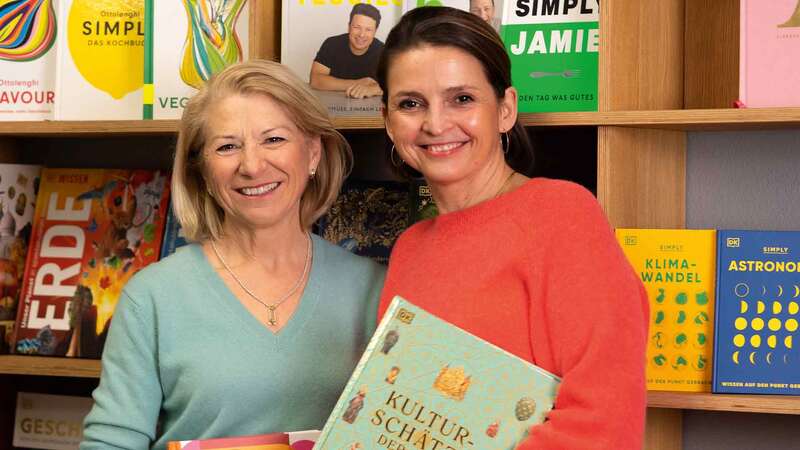You are viewing your 1 free article this month. Login to read more articles.
Indies optimistic about 2022 but brace for supply chain 'nightmares'
Independent presses have reported good Christmas trading, with some reporting “record-breaking” results at the end of 2021, starting the new year with optimism. However, many remain concerned about delivery chain "nightmares”, ongoing paper shortages, Brexit effects and the potential for a “flooded” market to crowd out their titles.
Bradford-based indie Fox and Windmill is preparing to publish its first title this year, but has had to rethink its budgets owing to the ongoing paper shortage and increase in costs.
“We’re really concerned about keeping our print units down so we can have fewer returns while also not increasing individual unit price,” said co-founder Habiba Desai.
“We’re still very new to the indie scene and learning as we go, from distribution to sales. Our issue is that until we have our book on the shelf at bookshops, we won’t know what to anticipate—it’s all about building the excitement and anticipation for our publications.”
The press launched eight months ago with the intention of platforming British South Asian writers, and Desai, along with fellow publisher Sara Razzaq, is pleased with the reception from the industry. “We’ve been able to connect with the right networks to spread the word and share our platform—people want to read more diverse and interesting stories that represent the underrepresented,” she said.
In Norwich, Galley Beggar publisher Sam Jordison reported successful trading at Christmas, and is excited about the indie’s new titles, which include After Sappho by Selby Wynn Schwartz.
“We can't wait for readers to discover it,” he said. “We've been very lucky at Christmas because we printed enough copies of our bestsellers in time. It feels like Alex Pheby's Mordew did incredibly well so we're really looking forward to releasing the follow-up Malarkoi later in the year.”
However, ongoing logistical issues owing to “delivery chain nightmares” are proving worrying for the team.
“We're relieved we don't have much to print at the moment, but we're steeling ourselves for an even bigger effort than usual to make sure our books actually arrive in the shops when the time comes,” Jordison explained. “We're also very much not looking forward to grappling with Brexit and learning what fresh nightmares the new restrictions land on us. Just before Christmas we had to deliver some books to a shop in France and it was mind-boggling how difficult and expensive it was, especially when it used to be so easy. Ridiculous.”
Jacques Testard, m.d. at Fitzcarraldo Editions, is also experiencing issues selling books directly to customers in the EU. “Because of post-Brexit chaos with VAT and customs rules, we're having to come up with more convoluted solutions than ever to get copies to our existing subscribers,” he said. “Gardners setting up in the EU is welcome news—we're hoping that we might eventually be able to warehouse some of our books in an EU country before too long so as to be able to distribute there again without issue.”
Despite this, the press had a strong year, led by the publication of The Books of Jacob by Olga Tokarczuk, translated by Jennifer Croft, as well as Alice Hattrick and Vanessa Onwuemezi's debuts and new books by Annie Ernaux and Jon Fosse, translated by Tanya Leslie and Damion Searls respectively. From this year, the publisher has moved its sales operation to the Independent Alliance, and plans to host events again, Covid-19 permitting.
Matthew Howard, publishing director of Welsh illustrated press Graffeg, and m.d. Peter Gill also have “major concerns” about Covid-19 and Brexit, the combination of which are having a “significant” impact on overseas sales.
“We've reluctantly had to stop accepting orders from outside the UK owing to uncertainties in delivery timescales and also the various tariffs and fees that our customers then find themselves subject to,” said Howard.
“The main causes for concern are rising costs in production and shipping delays on books where prices were fixed some months earlier,” added Gill. “This is creating further pressure on margins.“
In spite of the “chaotic” print and delivery pressures, bookshop and online sales are holding up well through the range, the pair said.
For Orenda publisher Karen Sullivan, a huge “frustration” continues to be retailers "playing it safe. Retailers are focusing on big titles from big publishers, even special editions of books that have been out there for months and months,” she said. “We've had several books that had a clean sweep of the mainstream press and reader reviews in their hundreds, but the buy-in has not matched expectations. It is definitely a flooded market, and I do understand that bricks-and-mortar retailers are still recovering from difficult years—however, failing to pick up on titles that are attracting huge attention just means sales are driven to online retailers, and that's not ideal for anyone involved.”
Sullivan planned ahead for supply chain issues, printing early and direct delivery for Orenda’s subscription box and to key retailers. Sales through the website were also strong, with backlist and author-specific book bundles doing particularly well. However, Sullivan doesn’t feel any book or author has achieved the sales they deserve “given the wealth of press, buzz and word-of-mouth recommendations” going on.
“If this is the 'new normal', it's going to be challenging for independents in future,” she said.
Jacaranda m.d. Valerie Brandes has said the team is still mostly operating remotely, and though this is working well, the "challenges of life in the pandemic, the compounded stresses of restrictions on lifestyle and movement, uncertainty over individual and community health, and global supply chain blockages continue with sobering consistency and it is undeniably disheartening".
She added: "Small publishers do have the advantage in weathering these storms of our size which makes having to adjust to certain situations less of a daunting task in that way, however, in practically every other way it is an existential crisis. Small presses will hunker down and ride it out as best we can."
Pushkin Press m.d. Adam Freudenheim, meanwhile, has celebrated a “record-breaking year”, with the success of Sunday Times Top 10 bestseller The Passenger by Ulrich Alexander Boschwitz, which was Waterstones Fiction Book of the Month in October. “We’re feeling optimistic about this year too given the strength of our publishing programme,” he said. “We are publishing more children’s books than ever before, including a growing number of picture books—six this year.”
“There is of course the receding threat of further lockdowns," he added, “less and less likely, I think [but] Brexit remains an issue, rising cost of materials—especially paper—but on the whole I think it’s a very good time to be a book publisher.”



















